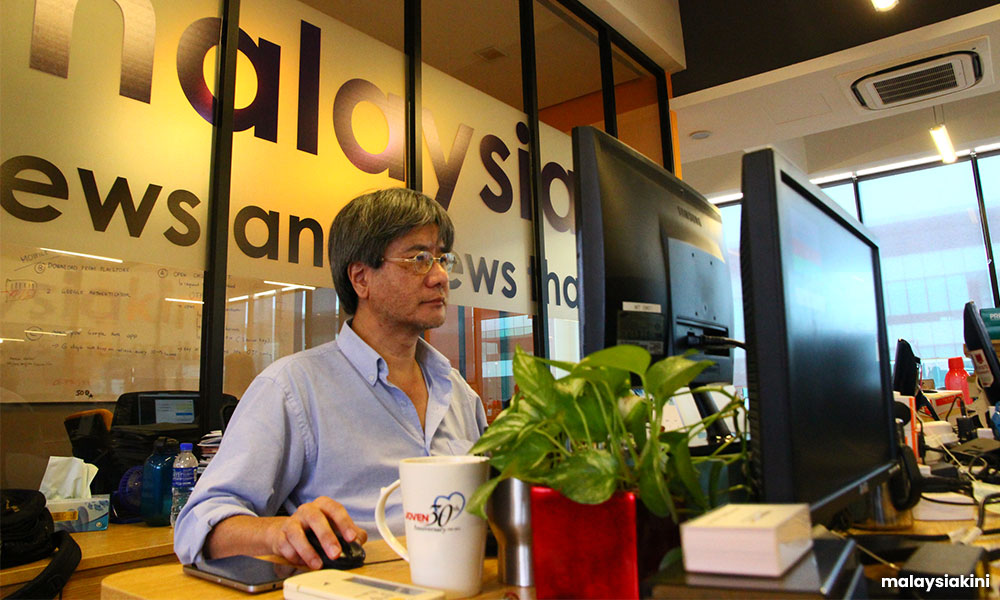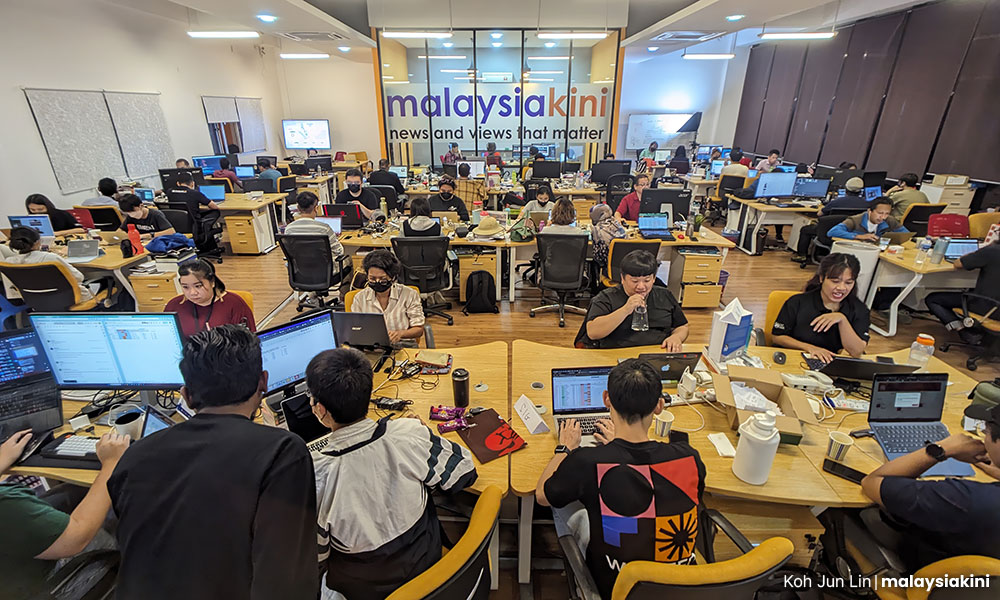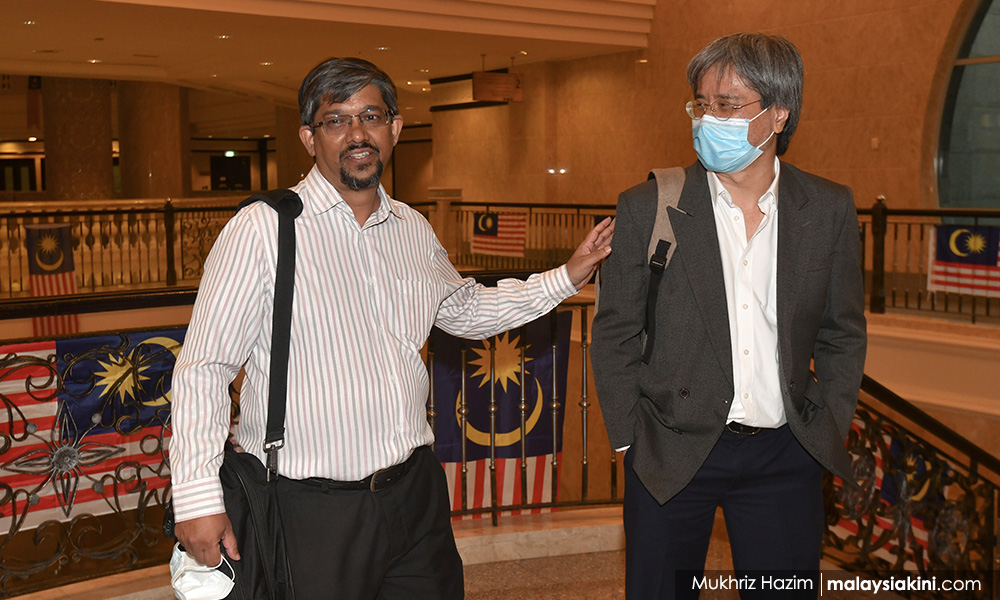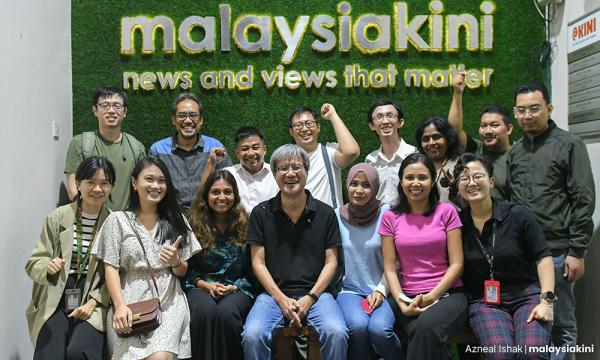People often ask me, “What’s your proudest achievement at Malaysiakini?” Oddly, it’s not the political impact we have made. That was relatively easy, especially when mainstream media often couldn’t - or wouldn’t - tell the stories that truly mattered.
What I’m most proud of is Malaysiakini's financial independence. Few believed a scrappy website like ours would survive this long, let alone for a quarter of a century. Yet, here we are.
Our journey hasn’t been easy. We have faced countless challenges, but through it all, we remained financially independent. Year after year, we have managed to break even, sometimes even turning a modest profit. And on the few rare occasions when we were unable to make ends meet, we adapted. We cut costs, tightened our belts - but never compromised our mission.
We have done this by staying lean. Our top editors and managers take home below-market salaries. We have also diversified our income streams - relying on subscriptions, advertising, and event organising. And when push came to shove, we turned to our greatest asset - you, our readers. From helping us pay steep court fines to funding the building of our headquarters, your support has been nothing short of remarkable.
Former University Malaysia Perlis associate professor Murray Hunter recently described Malaysiakini as a product of a “black swan event”. Back in mid-1990s, former prime minister Mahathir Mohamad, seeking to attract foreign investment for his Multimedia Super Corridor (MSC) project, made an unexpected promise - no censorship of the internet.

Mahathir later grudgingly conceded that this decision came from the MSC’s international advisory panel, which included Microsoft founder Bill Gates and futurologist Alvin Toffler. But what he didn’t anticipate was the rise of start-ups like Malaysiakini.
Extinction-level event
Today, Malaysiakini faces another “black swan event”. This time, it’s an existential crisis not only for us but for independent media worldwide. Some call it an “extinction-level event”.
Indeed, news consumption patterns have shifted dramatically - perhaps irreversibly. Few people read newspapers anymore, and increasingly, fewer visit news websites. Instead, platforms like TikTok, WhatsApp, and YouTube have become the primary sources of information. Most people now turn to social media for entertainment and escape, not serious news. For younger audiences, “news” could mean anything - from celebrity gossip to fashion trends.
Overwhelmed by the sheer volume of content, audiences are experiencing news fatigue, with many opting to avoid news altogether. And let’s not forget the flood of AI-generated content, diluting quality, well-researched and fact-checked journalism with waves of low-grade material.

Advertisers, too, are steering clear of political news websites, branding them as “unsafe”. They prefer platforms that make people happy, not angry. As a result, many news outlets struggle to make reader revenue models work, with the public unwilling to pay for news when free content abounds online.
Amid this, a new breed of content creators - the so-called influencers - has emerged. With minimal costs, they churn out opinion-heavy, often superficial content, garnering as much - if not more - attention than traditional journalists. While their voices fill the already saturated space, what’s often missing is the work that journalists do - reliable, hard-hitting news that holds power to account. Yet, it is their work that delivers the most compelling records of local and global events.
It’s not just the volume of content that threatens us - it’s the erosion of standards. At Malaysiakini, we’ve always balanced the innovation of new media with the rigour of traditional journalism. Of course, we’re not perfect but we strive to uphold the principles of accuracy, verification, and ethical reporting. Social media has a role in calling out mistakes and presenting alternative viewpoints, but content creators must hold themselves to the same high standards they demand of journalists.
As financial pressures mount, it becomes increasingly harder for media outlets to resist the pressures from powerful business interests or governments seeking to keep the media on a tight leash. Fewer and fewer news organisations will be able to stand firm and refuse to compromise on truth-telling.

But despite the rise of social media-driven news consumption, I believe there remains a fundamental desire for reliable, fact-based journalism. After all, democracy depends on it. A society devoid of verified, accountable reporting is one where misinformation thrives - and power remains unchecked.
Small minority
According to the Digital News Report 2024, only 21 percent of Malaysians are willing to pay for online news. If you’re reading this, chances are you’re part of the minority who values independent journalism. Malaysiakini has survived this long because of subscribers like you. And as advertising revenues dry up, we need this minority more than ever.
If you’re already a Malaysiakini subscriber, thank you. Your support is our lifeline. If you can spare a little more, consider buying a subscription for someone who would benefit from visiting Malaysiakini. If your subscription has lapsed, please renew it. And if you’ve never subscribed before, now might be the time to start.
Last month, we had to make one of the hardest decisions in Malaysiakini’s history - we let go of a few of our team members. It was only the second time in 25 years. The first was in the early 2000s when we were just five years old, struggling to stay afloat. It was painful then, and it’s painful now. But that tough call allowed us to weather the storm, and we have been here ever since - documenting Malaysia’s journey through the post-Reformasi era.
With your support, we believe we can weather this “extinction-level event” too. Help us continue doing what we do best - delivering news and views that matter. Stand with us as we face this moment of reckoning. Subscribe now!
You can gift our subscription to a friend now. Alternatively, send your donation here.
ALSO READ:
STEVEN GAN, co-founder of Malaysiakini, stepped down as editor-in-chief last year and now divides his time between Thailand and Malaysia.


